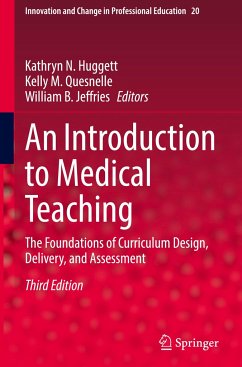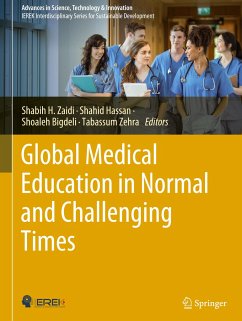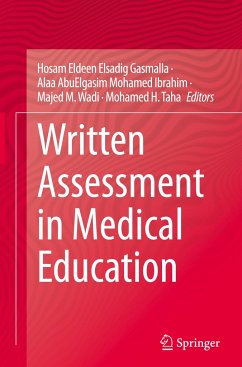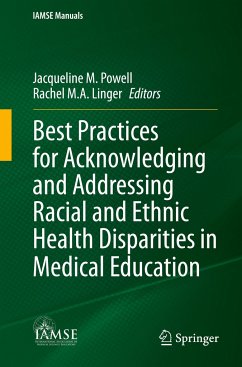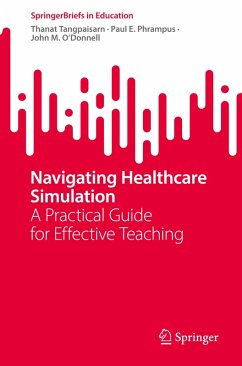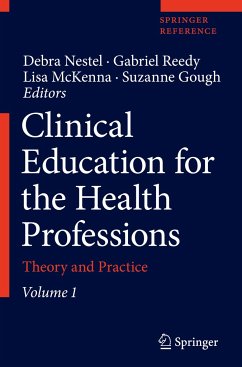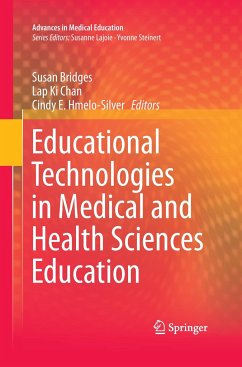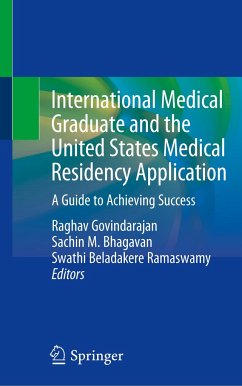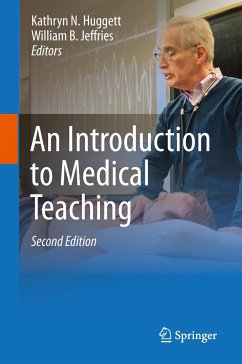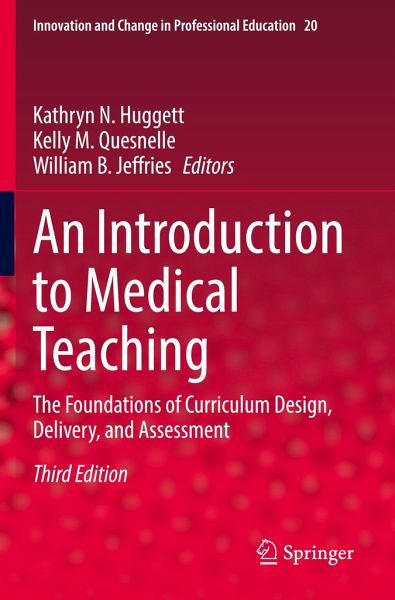
An Introduction to Medical Teaching
The Foundations of Curriculum Design, Delivery, and Assessment
Herausgegeben: Huggett, Kathryn N.; Quesnelle, Kelly M.; Jeffries, William B.
Versandkostenfrei!
Versandfertig in 6-10 Tagen
121,99 €
inkl. MwSt.

PAYBACK Punkte
61 °P sammeln!
This is an introductory text designed to provide medical teachers with a comprehensive introduction to the core concepts of effective teaching practice. It contains introductory-level information about innovations for curriculum design, delivery, and assessment, all in a singular text. The work offers brief, focused chapters with content that can be easily assimilated by the reader. The topics are relevant to basic science and clinical teachers, and the work does not presume readers possess prerequisite knowledge of education theory or instructional design.The book builds upon and extends the ...
This is an introductory text designed to provide medical teachers with a comprehensive introduction to the core concepts of effective teaching practice. It contains introductory-level information about innovations for curriculum design, delivery, and assessment, all in a singular text. The work offers brief, focused chapters with content that can be easily assimilated by the reader. The topics are relevant to basic science and clinical teachers, and the work does not presume readers possess prerequisite knowledge of education theory or instructional design.
The book builds upon and extends the content of the second edition by incorporating additional content to reflect advances in cognitive science and by updating existing chapters to keep pace with modern educational trends and technologies.
The book builds upon and extends the content of the second edition by incorporating additional content to reflect advances in cognitive science and by updating existing chapters to keep pace with modern educational trends and technologies.





